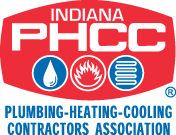Recently, new regulations have spurred a movement to alternate refrigerants, but beware! Some retail outlets are selling a so-called replacement refrigerant for R-22. There are various names for this product, usually containing “22a”. While these products will perform as a refrigerant, they do not appear to be EPA SNAP-approved for these applications. Additionally, there are significant safety hazards related to leaks or to service personnel who may be unaware that this product is in equipment.
Dangerous R-22 Alternate
New regulations have spurred a movement to alternate refrigerants. While there are a number of possible replacements available that will perform well, careful consideration should be taken before using these products. A service technician may find equipment with unusual performance characteristics as a result of this trend.
A disturbing situation has been discovered: Some retail outlets are selling a so-called replacement refrigerant for R-22. There are various names for this product, usually containing “22a.” The main concern is they are isobutene- or propane-based products (R-290). Some Material Safety Data Sheets (MSDS) indicate they are 100 percent alkanes (i.e., of the hydrocarbon family—methane, ethane, propane, etc.). While these products will perform as a refrigerant, they do not appear to be EPA SNAP-approved for these applications.
Additionally, there are significant safety hazards related to leaks or to service personnel who may be unaware this product is in equipment. Typically there is a disclaimer that they are not sold as R-22 replacements in the United States or that mixing refrigerant is illegal.
Industry discussions are underway to consider the situation. Service companies should verify the history of equipment, when possible. Technicians should suspect equipment with unusual performance characteristics as having improper or contaminated refrigerant. Service equipment such as vacuum pumps and recovery machines may not be suitable for handling these products; verify equipment compatibility if possible.
Remember: It is illegal for anyone to intentionally mix refrigerants in equipment. Use alternate refrigerants wisely; do not top off a system with an alternate refrigerant.
reprinted from PHCC National Association
